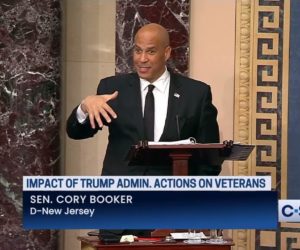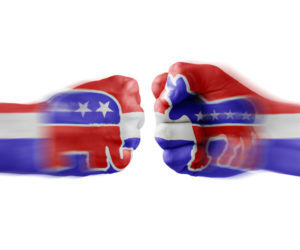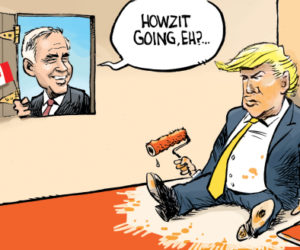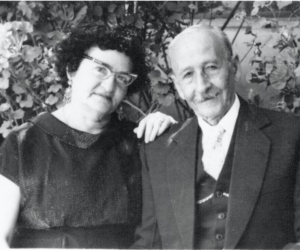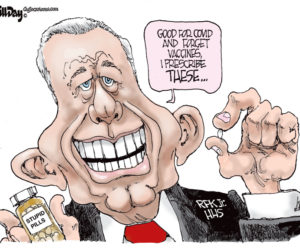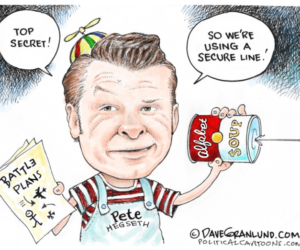Air passengers have had a Howard Beale moment recently. United Airlines caused a properly seated passenger from a properly ticketed and paid-for seat to be dragged off a Chicago-to-Louisville flight to make room for an airline employee needing to get back home. The passenger was unmoved by United’s offer of rich credits. The passenger had someplace to be and would be damned if he would take the boot lying down. In fact, he did. The crew summoned Chicago Aviation security officers, who dragged him up the aisle and out of the plane. As it happens so often these days, witnesses caught the ugly incident on a mobile phone. The video burst on social media, and United absorbed an unprecedented amount of bad PR, more than if the plane had crashed. United CEO Oscar Muñoz exonerated the crew, which was cowering behind a Nuremberg defense.
Delta lately was scorched in a disturbing incident. A passenger was either hit or restrained by a Delta pilot, who claims to have been breaking up a fight after landing between two passengers on a jetway. Delta and the pilot deny any wrongdoing but the pilot was suspended pending investigation anyway.
The airline industry has long been an example of end-stage capitalism. Operational costs are enormous, and domestic routes have been concentrated through consolidation in the hands of a few operators. The cost of entry into the air business is prohibitive, so there are no new competitors. The consolidators have control over the routes. Delta is one of the nation’s predominant carriers. Monopoly control not only favors richer flyers but allows the major airlines to decrease benefits to average customers.
Monopolization of the skies has made them less friendly. Main cabin passengers lost their pillows and blankets and the miserable food. Next, the airlines made customers pay for baggage. After all, most travelers should be able to get by with a backpack or carry-on as long as they’re as acquiescent about their appearance as their comfort. The final indignity is that a passenger has to pay for an ”upgrade” just to get a seat assigned in advance of the flight. Air travel has gone general admission, like a dance concert.
Zoned Out
The airline’s disdain for rank and file customers is most apparent in the games played with boarding priorities. After loading the disabled, the well-heeled, Civil War Veterans and Really Frequent Flyers, the gate agent announces it is time to board Zone 3. After standing at the gate for half an hour, coach passenger is then treated to another ten or so minutes in the jetway, during which she’s at risk of having her jammed-up carry-on snatched away. When she finally boards, stuck behind others trying to jam hover boards and golf clubs into the overheads, she trudges to her seat just ahead of the tail of the plane.
“If this is Zone 3,” she asks the attendant, “where are Zones 1 and 2?” The attendant explains that the zones are not physical, which she confirms by viewing the spattering of people seated all the way up to the curtain separating the main cabin from the upper crust.
“You mean, the Zones are virtual?” The flight attendant nods while brushing past her. The airline sacrifices efficiency of filling the plane from the tail forward for the revenue stream derived from passengers who are willing to pay to board the flying sardine can sooner. This privilege earns them disproportionate space in the overheads, somewhat like getting up at 4 am to plant a towel on a chaise lounge at a resort to reserve it for the day. The resort, thus far, has kept dispensation of the lounges an early-bird meritocracy.
Industries not affected by the inverse supply and demand curve actually offer incentives to new customers. Not the major carriers. As comedian Robert Klein rejiggered economist Adam Smith, “We have all the supply, so we can demand whatever the fuck we want.”
Pulling Out of a Stall
Now that United and Delta have been caught in flagrante departure, the worm may begin to turn. When a Delta flight out of La Guardia recently was delayed by an electronic problem, without coercion the airline began to transfer willing passengers to a slightly later flight. Unable to fix the glitch, Delta took the extraordinary step of rolling out another airplane.
Dazzled by Delta actually having spare planes due to its extraordinary number of flights and routes, I commented to a younger passenger seated next to me that this had been common when Eastern was operating its Boston and Washington Shuttles, rolling out another plane if the first one was full. In her glazed-over look, I saw a reflection of bi-planes and aerial wing-walking stunts.
“Eastern?” she said.
Evan Sarzin is the author of Hard Bop Piano and Bud Powell published by Gerard & Sarzin Music Publishing. He writes and publishes Revolted Colonies (http://revoltedcolonies.com).



